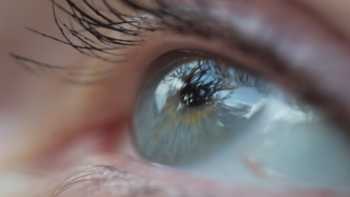Our Members Asked:
Can castor oil eye drops improve or dissolve cataracts? Is castor oil or tea tree oil helpful for other eye conditions such as blepharitis or dry eye?

Answer:
Despite anecdotal reports of castor oil eye drops improving vision in people with cataracts, there is currently no clinical evidence to support this. Castor oil may be helpful, however, in treating dry eye and, possibly, inflammation of the eyelid (blepharitis).
What is castor oil?
Castor oil, pressed from the seed of the castor plant, (Ricinus communis L.) has been shown in laboratory and animal studies to have antioxidant and anti-inflammatory properties (Iqbal ISRN Pharmacol 2012), which some websites propose could help to slow the changes in the eye that occur with age and lead to the formation of cataracts — but this has not been studied or proven.
Health effects of castor oil
Cataracts
There are no clinical studies investigating the effects of castor oil eye drops on cataracts. There is one published report of castor oil drops helping to improve vision in a 68-year-old man with a mild cataract in one eye. It should be noted that he was taking several medications (such as pregabalin, alendronate and amiodarone) that can also cause blurry vision and other visual disturbances. After applying one drop of castor oil to the inner corner of the eye twice daily for one month, in addition to using warm and cool eye compresses and taking several supplements (vitamin C, lutein, ginkgo and others), an eye exam showed that vision in his right eye had improved from 20/100 to 20/70 (Fu, Naturopathic Doctor News and Review 2018). As discussed in the report, it is usually advised that castor oil eye drops be applied before bedtime since the oil can temporarily cause blurry vision.
Also see our article Do any supplements help prevent or improve cataracts?
Dry eye
Castor oil is used as an ingredient in several eye drops on the market, and these have been shown in clinical studies to improve symptoms of dry eye (Goto, Ophthalmol 2002; Khanal, Cornea 2007; Kaercher, Clin Ophthalmol 2014). These formulas are typically only 1% to 5% castor oil (although some may contain more) along with preservatives and carriers that help distribute the oil in the eye.
Blepharitis
Applying castor oil around the eye may improve symptoms of blepharitis - inflammation of the eyelid. A study in New Zealand among 26 people (average age 38) with blepharitis found that applying 100% cold pressed castor oil to the upper and lower eyelid twice daily for 4 weeks improved self-reported symptoms and reduced eyelid margin thickening, as well as eyelash matting, dandruff and crusting compared to no intervention, although there was no placebo-control. Lubrication of the eyelid surface, however, did not improve (Muntz, Ocul Surf 2020).
Applying diluted tea tree oil might improve symptoms of blepharitis caused by eyelid mites (Demodex blepharitis), but the potential benefit may be affected by compliance and proper application of the oil. One study showed that weekly eyelid scrubs with 50% tea tree oil along with twice daily scrubs with 10% tea tree oil for 4 weeks decreased mite count compared to eyelid scrubs with saline. Self-reported eye surface discomfort was also improved compared to saline scrubs, but only for those who applied the scrub more than 10 times weekly (Koo, J Korean Med Sci 2012). However, a review of this and five other studies concluded that the benefit of applying 5% to 50% tea tree oil for Demodex blepharitis is uncertain, as nearly all studies have been short-term and prone to bias (Savla, Cochrane Database Syst Rev 2020). Keep in mind that not all forms of blepharitis are caused by eyelid mites. Tea tree oil may not be beneficial for these other forms since its primary effect is helping to eradicate mites.
Safety
Although castor oil generally appears to be safe to use as an eye drop (when one to two drops are taken before bedtime, or as an ingredient in commercial eye drops used as directed), be aware that allergic reactions to castor oil can occur (Taghipour, Contact Dermatitis 2008; Challoner, Ann Emerg Med 1990). [Note: Castor beans should never be consumed: Parts of the bean contain the poison ricin; no ricin is thought to remain in castor oil after extraction and heat processing (Audi, JAMA 2005)].
Applying tea tree oil around the eye may cause allergic reactions, contact dermatitis and eye irritation (Koo, J Korean Med Sci 2012). The risk of irritation appears less likely when lower concentrations of tea tree oil are used (Savla, Cochrane Database Syst Rev 2020).
With early-stage cataracts, vision may be improved with stronger eyeglasses, brighter lighting, and use of magnifying lenses. However, according to the National Eye Institute, surgery is the only effective option for cataracts that need treatment.
The bottom line
Although eye drops containing castor oil may help improve symptoms of dry eye and blepharitis, there is currently no compelling evidence that applying castor oil to the eye can diminish cataracts. Castor oil eye drops should be used at bedtime because they can temporarily cause blurry vision. Be aware that allergic reactions can occur in some people.
For information about other proposed natural treatments for cataracts, see ConsumerLab's answer to the question: Do any supplements help prevent or improve cataracts?
Join today to unlock all member benefits including full access to all CL Answers and over 1,400 reviews.
Join NowAlready a member? Sign In Here.
Join now at www.consumerlab.com/join/














Submit your comment
This feature is restricted to active members.
Join now to add comments and get all member benefits, including over 1,400 reviews.
Join NowAlready a member? Sign in here.